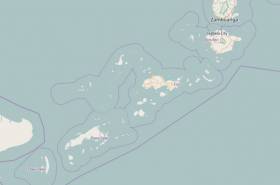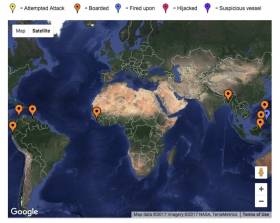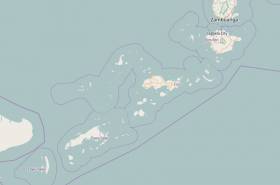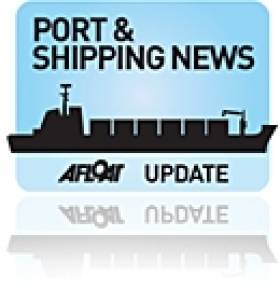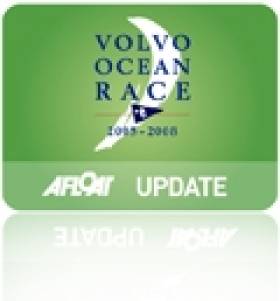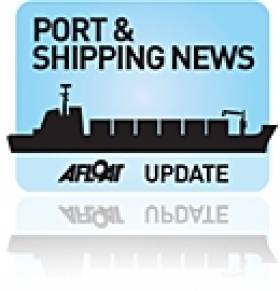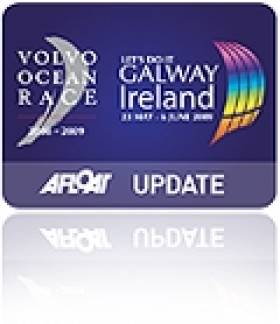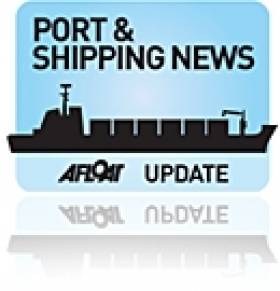Displaying items by tag: Piracy
Abducted German Sailor Found Dead In Philippines
#Piracy - The body of a German sailor held hostage by militants in the Philippines late last year has been found, as RTÉ News reports.
Seventy-year-old Jurgen Kantner was murdered last week by terror group Abu Sayyaf after their ransom demands of more than half a million euros were not met, according to the Philippine government.
Kantner had been captured in November by the IS-aligned militant group, who killed his companion Sabine Merz when their yacht Rockall was boarded off the southern Philippines in an kidnapping blackspot, as previously reported on Afloat.ie.
The incident came eight years after the couple had been held hostage for 52 days by Somali pirates at the Horn of Africa.
RTÉ News has more on the story HERE.
Offshore Sailors Beware As Sea Kidnappings Rise
#Piracy - Offshore cruisers are urged to be vigilant as the latest figures show a rise in sea kidnappings despite a global decrease in piracy.
Practical Boat Owner has more on a recent report from the ICC’s International Maritime Bureau identifying a number of zones and shipping routes where sea pirates are known to operate.
West Africa in the Gulf of Guinea and the waters around Malaysia and Indonesia are the biggest hotspots for kidnappings, which tripled worldwide in 2016 on the previous year’s figures.
Only weeks ago a German sailor was abducted and his companion killed off the southern Philippines, eight years after the couple were held hostage by Somali pirates.
The Royal Yachting Association urges cruisers in vessels “which are slow and low remain vulnerable from opportunistic attacks and hijackings” to steer clear of such danger zones.
German Sailor Killed, Another Abducted By Militants Off Philippines
#Piracy - A German sailor has been abducted and his companion killed by militants off the southern Philippines — eight years after the couple were held hostage by Somali pirates.
According to Mail Online, the terror group Abu Sayyaf — which specialises in kidnappings for high ransoms — has claimed responsibility for abducting 70-year-old Jurgen Kantner and killing Sabine Merz, whose body was reportedly found by the Filiino military on the couple’s yacht Rockall.
The region where the yacht was found is generally avoided by foreign yachts due to the high risk of kidnapping. Earlier this year two Canadian men were beheaded by Abu Sayyaf after the group’s ransom demands were not met.
In 2009, Kantner expressed his own concerns about a second kidnapping following payment of a ransom to Somali pirates who had held him and Merz for 52 days the previous year.
"I really hope the pirates don't catch me because this time no one will pay and everybody will tell the pirates: 'Keep him'," he told news agency AFP.
Mail Online has much more on the story HERE.
Ardmore Shipping Announce Acquisition of ‘Seafarer’ Sister
#NewTanker – Ardmore Shipping Corporation have acquired a 45,726 Dwt MR product tanker built in 2006 at Minami Nippon Shipbuilding Co., Ltd., Japan, for a purchase price of approximately $20.5 million.
According to EON News, the medium-range vessel is expected to be delivered to Ardmore in December 2013, and is intended to be employed either in the spot market or on a one-year time charter. The company plans to convert the vessel to Eco-Mod shortly after delivery.
Afloat.ie adds that the newly acquired vessel understood to be named Ardmore Seamaster will raise the Ardmore fleet to 21 vessels: nine in operation and 12 on order from three shipyards with deliveries commencing January 2014.
As previously reported the Ardmore Seafarer (2004/45,744dwt) which was completed as Zoa Express, was re-named in honour of seafarers in recognition of 2010 as the International Maritime Organisation (IMO) Year of the Seafarer.
Notably in that same year the crew of the Ardmore Seafarer came under the threat of pirates 1,000 nautical miles off Somalia and some 500 nm off the coast of India.
NATO Anti-Piracy Mission Comes Under Fire
#pirates – This morning while conducting routine surveillance off the Somali coast, HNMLS ROTTERDAM the flagship for the NATO 'OCEAN SHIELD' counter piracy mission, came under sustained fire from groups of suspected pirates.
A boarding team from Rotterdam was making an approach on a suspect dhow near the coast when they came under fire from ashore and from the dhow itself.
Rotterdam returned fire in accordance with Rules of Engagement, during which the dhow was seen to ignite and crew members were observed leaping into the water.
One crew member of the dhow was killed in this action and 25 people were subsequently rescued from the water by Rotterdam. Commodore Ben Bekkering, the commander of the NATO Task Force, said that the Rotterdam and her boats remained under sustained fire from the shore throughout, even while attempting to rescue the crew of the stricken dhow and one of Rotterdam's rigid inflatable boats was damaged. More information in attached document.
VOR Second Leg Cut Short Over Piracy Concerns
#VOLVO OCEAN RACE - The second leg of the Volvo Ocean Race from Cape Town to Dubai has been cut short by organisers as a result of the growing threat of piracy in the Indian Ocean, The Irish Times reports.
The six yachts competing will be protected by armed guards as they are shipped on a secret route to the United Arab Emirates due to piracy concerns.
The boats will be transported by ship from an undisclosed location to Sharjah in the Arabian Gulf, from where they will sprint to the finish line in Abu Dhabi.
All six teams are currently in Cape Town, with Team Sanya, PUMA and Abu Dhabi Ocean Racing hoping to get back in the race after retiring in the first leg.
As previously reported on Afloat.ie, NATO recently foiled a pirate attack on a Spanish fishing vessel between the Seychelles and the Somali coast.
The Irish Times has more on the story HERE.
New NATO Website to Combat Piracy Goes Live
Having received a briefing on the new website, the Commander of MC Northwood, Admiral Sir Trevor Soar KCB OBE said;
"Piracy is a serious threat for the shipping community and anything that can be done to deal with and overcome this issue is to be welcomed. The NATO Shipping Centre has listened to their users and responded to their needs with a new, more interactive and relevant website demonstrating that NATO and the shipping community are working together to tackle the scourge of piracy."
Piracy Threat Forces Volvo Ocean Race Route Change
The escalating piracy problem in the Indian Ocean has forced organisers of the Volvo Ocean Race 2011-12 to redraw the routes for the second and third legs.
The boats were due to have sailed through an East African corridor in the Indian Ocean on the second leg from Cape Town to Abu Dhabi and again in the third leg from Abu Dhabi to Sanya in China but after taking advice from marine safety experts and the sport's governing body, the International Sailing Federation (ISAF), the routes have been changed.
The boats will now race from Cape Town to an undisclosed 'safe haven' port, be transported closer to Abu Dhabi, and then complete the leg from there. The process will be reversed for the third leg before the race continues on to Sanya.
"This has been an incredibly difficult decision," said Volvo Ocean Race Chief Executive Knut Frostad. "We have consulted leading naval and commercial intelligence experts and their advice could not have been clearer: 'Do not risk it.'
"The solution we have found means our boats will still be racing into Abu Dhabi and competing in the in-port race there.
"Abu Dhabi is a very important part of our plans, a real highlight being the race's first-ever stopover in the Middle East, and we will now have a really exciting sprint finish to the emirate over the New Year period as well."
Abu Dhabi will host the race from December 30 to January 14 with a purpose-built race village at its Corniche waterfront site and a headline New Year's Eve concert amongst various festivities set to provide a spectacular welcome to more than 100,000 visitors.
"The measures taken by the Volvo Ocean Race are very much in line with the advice that the International Sailing Federation has been giving for some time." said ISAF Secretary General Jerome Pels. "The ISAF strongly urges all yacht skippers intent on sailing anywhere in the area to seek an alternative, which the Volvo Ocean Race is now providing."
NATO Issue Guidelines to Prevent Piracy
The products tanker Ardmore Seafarer (2004 / 45,744 dwt ) which was at sea 1,000 (nm) nautical miles off Somalia and some 500 nm off the coast of India, came under the attack of pirates last year.
The 179m long vessel which is operated by the Cork based Ardmore Shipping Group managed to evade the attack and potential seizure of the vessel thanks to the decisive action of the ships master, Captain Benamu. For more information about the Irish based company here and for a picture of the vessel click this link.
Though, the fate to other commercial shipping, was less fortunate, when 23 vessels were attacked in the Arabian Sea alone, in January of this year. Five of those attacks have resulted in the ships being taken over and held by the pirates.
To combat this threat, NATO, the EU Naval Force (EUNAVFOR) and Coalition Maritime Force (CMF), together with warships from other nations, continue to operate in attempting to prevent pirate hijacks. Though not every vessel can be guaranteed a warship to intervene from the threat of pirates, due to the sheer size of the sea area, which is the equivalent to an area the size of western Europe.
On an annual basis, there are approximately 22,000 ship movements that transit the Gulf of Aden and many of these now use Best Management Practices (BMP).
Some of the guidelines set by the BMP is for a vessel to set a high speed through the area, the placing of barbed wire around the ship and the use of water cannons to ward off an imminent attack. Ships with a low freeboard and at a slow speed, and small vessels, such as yachts, are particularly vulnerable to pirate attack.
Since December 2008, NATO has contributed to the international counter piracy effort off the Horn of Africa. This requires protecting the ships providing UN and World Food Programme through Operation Allied Provider and in general merchant shipping traffic plying in the Gulf of Aden.
In addition to these activities, Operation Ocean Shield, NATO is working with other international bodies to help develop capacity of countries in the region to tackle piracy on their own.
Under the Standing NATO Maritime Group 2 which is permanently assigned to NATO. This is a multi-national naval group formed through the NATO Alliance that provides a stand-alone task force with the ability to quickly respond to crisis situations anywhere in the world.
The current commander of NATO Maritime Group 2 is Commodore Michiel B. Hijmans of the Royal Netherlands Navy. The fleet consists of the Dutch HNLMS De Ruyter (the 'flagship' of the international fleet), HDMS Esbern Snare (Denmark), USS Bainbridge and USS Laboon (USA) and TCG Giresun from the Turkish Navy.
NATO is to continue operating their counter-piracy measures by extending Operation Ocean Shield to December 2012. To read more about the pirate attacks, the Best Management Practices and general advice for vessels logon to the NATO Shipping Centre www.shipping.nato.int



























